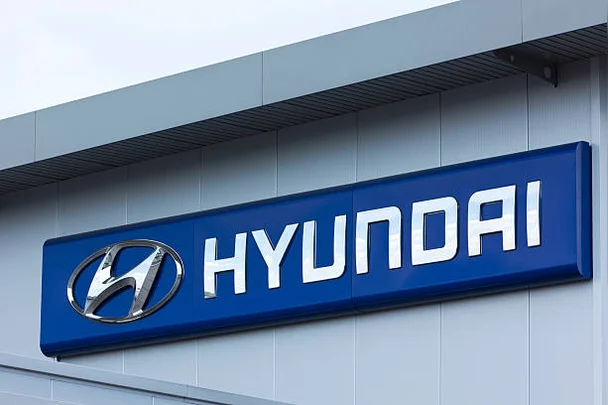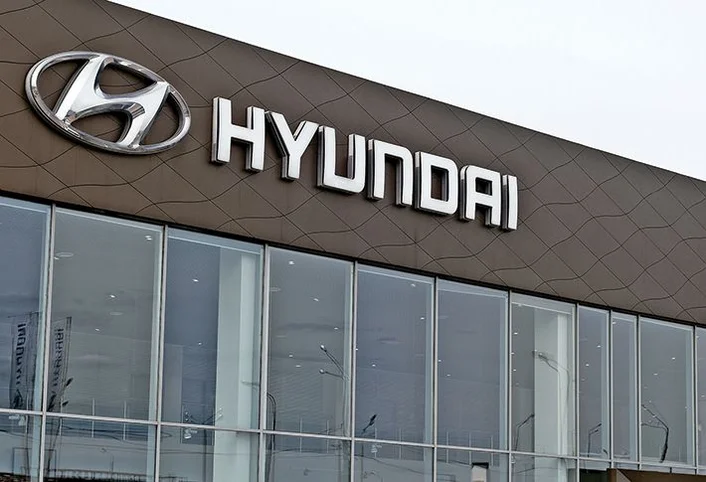Hyundai Motor India recently made headlines when its shares dropped by 5% post-listing on the stock market. For many investors, this sharp decline raises the question: Is it a buying opportunity, or is it time to sell or hold onto your shares? In this blog, we’ll dive into Hyundai Motor India’s market performance, financial health, and the broader automotive industry to help you make an informed decision.
Table of Contents
Stock Market Reaction to Hyundai’s Listing
The stock market can be unpredictable, and Hyundai’s 5% drop after its listing is a prime example. Despite the brand’s strong reputation, the decline caught many investors by surprise. But such price fluctuations are common, especially when a company first enters the stock exchange.
In Hyundai’s case, several factors may have contributed to the initial dip. Market sentiment plays a significant role—sometimes, even a strong company can experience a share price drop if investors feel uncertain about its future. Additionally, broader economic factors, like inflation, global oil prices, and interest rates, could be impacting the entire auto sector, not just Hyundai.
Recent trends have also shown that some IPOs (Initial Public Offerings) face a dip in share prices after listing, only to stabilize or rise later as the market adjusts. It’s important to understand that a post-listing drop doesn’t necessarily mean the stock is doomed. But it does warrant a closer look.

Hyundai Motor India’s Financial Health
Before deciding whether to buy, sell, or hold, it’s crucial to examine Hyundai Motor India’s financial health. Hyundai is one of the top players in the Indian automotive market, known for its popular models like the Creta, i20, and the new Alcazar. The company has consistently posted healthy profits and holds a significant market share in the competitive Indian auto industry.
Hyundai’s revenue figures have been strong over the years, backed by consistent sales. Its commitment to innovation and customer satisfaction has also helped the brand maintain a loyal customer base. With a strong balance sheet and solid cash reserves, Hyundai is financially well-positioned to weather short-term market fluctuations.
In the long term, the company’s focus on electric vehicles (EVs) and environmentally friendly models could be a major growth driver. As the global and Indian markets shift toward greener technology, Hyundai’s investment in EVs gives it an edge over competitors.
Industry Outlook and Competition
The Indian automotive industry is rapidly evolving, and Hyundai faces stiff competition from both domestic and international players. Companies like Tata Motors, Mahindra, and Maruti Suzuki are Hyundai’s biggest rivals in the Indian market. Tata Motors, in particular, has made significant strides with its electric vehicles, posing a challenge to Hyundai’s EV strategy.
Additionally, global auto giants like Toyota and Kia are also vying for a larger share of the Indian market. Hyundai’s ability to stay ahead of this intense competition will be critical in determining its stock performance in the future.
The Indian government’s push toward electric mobility and the growing demand for affordable, fuel-efficient cars are shaping the industry’s future. Hyundai’s strategy of balancing traditional gasoline models with its expanding EV lineup could help it navigate these changes. However, this transition will not happen overnight, and the company’s success will depend on how quickly it adapts to the changing landscape.

Key Factors Impacting Stock Performance
Several key factors are likely to impact Hyundai Motor India’s stock performance in the coming months:
- Electric Vehicle Expansion: Hyundai’s plans to increase its EV offerings will be crucial for long-term growth. The shift toward electric mobility is gaining momentum globally, and India is no exception. Hyundai has already launched electric models like the Kona Electric and plans to introduce more EVs in the near future. The success of these models will directly impact the stock’s performance.
- Economic Conditions: The auto industry is highly sensitive to economic factors like inflation, interest rates, and oil prices. Rising fuel costs, for instance, could drive demand for Hyundai’s fuel-efficient and electric models. Conversely, high inflation and interest rates may dampen consumer spending, impacting car sales and, subsequently, the company’s stock.
- New Models and Innovation: Hyundai’s ability to innovate and launch new models that cater to the evolving preferences of Indian consumers will be a major growth driver. The success of recent models like the Alcazar indicates that Hyundai is in tune with market demands. Continued innovation will be key to maintaining its competitive edge.
- Global Supply Chain Issues: Like other car manufacturers, Hyundai has faced supply chain disruptions due to the COVID-19 pandemic and the global chip shortage. While these issues are starting to ease, any further disruptions could affect production and sales, thereby impacting the stock price.
Expert Opinions and Market Analyst Recommendations
So, what are the experts saying? Financial analysts are divided on whether Hyundai’s 5% drop post-listing should be a cause for concern. Some believe that the dip presents a good buying opportunity, especially for long-term investors who are confident in Hyundai’s future growth prospects.
On the other hand, some analysts are cautious, citing broader market conditions and the auto industry’s challenges, such as the transition to EVs and ongoing supply chain issues. However, the general consensus seems to be that Hyundai remains a solid player in the auto market, and its long-term prospects look promising.
Should You Buy, Sell, or Hold?
Let’s break down the decision based on different types of investors:
- For Long-Term Investors: If you believe in Hyundai’s long-term growth story, particularly its focus on electric vehicles and innovation, then this 5% drop could be a buying opportunity. Hyundai has strong fundamentals, and its long-term growth prospects in the EV space are promising.
- For Short-Term Investors: If you’re looking for quick returns, you might want to hold off on buying right now. The market could experience further volatility in the short term, and there may be better entry points in the future. If you already own Hyundai shares, holding onto them for now could be the best option, as the stock may stabilize and recover in the coming months.
- For Risk-Averse Investors: If the recent drop makes you uncomfortable, and you’re unsure about the company’s short-term outlook, it might be a good time to sell. However, selling during a dip often means locking in losses, so carefully weigh your options before making a decision.
Conclusion
Hyundai Motor India’s 5% drop after listing may have raised some eyebrows, but it’s not necessarily a cause for alarm. The company’s strong financials, innovative strategies, and focus on electric vehicles make it a solid long-term investment. However, the broader economic environment and industry competition could lead to short-term volatility.
Ultimately, whether you should buy, sell, or hold depends on your investment goals, risk tolerance, and how much faith you have in Hyundai’s ability to navigate the evolving automotive landscape. Long-term investors may see this dip as a buying opportunity, while short-term traders may prefer to wait for further market stability.

Anaya Shah is a seasoned consumer product analyst with over 8 years of experience in the retail and e-commerce industries. She holds a Master’s degree in Business Administration with a specialization in Marketing from a top-tier university. Anaya has a keen eye for detail and a passion for uncovering the true value of products, helping consumers make informed decisions. At BrandCritica.com, she brings her expertise in product evaluation, brand analysis, and market trends to deliver trustworthy and insightful content. Connect with Anaya on Instagram for the latest updates and reviews.

